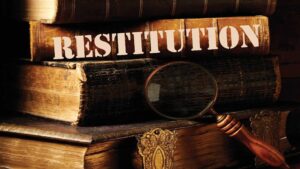The prosecution cannot call witnesses, cross-examine the prosecution’s witnesses, or offer evidence that refutes the prosecution’s theory of the case during grand jury hearings since they occur in secret. Contrarily, Jury trial is open to the public. Furthermore, jurors may hear from the defense, enabling them to make a well-informed choice.
He/She may learn about a single inquiry during this period or hear testimony from several cases. A trial jury will only hear testimony relating to one defendant.
But there are some clear distinctions between the two kinds of jurors, described below.
A Grand Jury: What Is It?
Many individuals are curious as to how it works. In short, he/she advises the prosecutor on whether to press charges against a criminal defendant. However, jurors must only work a few days every month.
Grand jury procedures serve as trial practice for the prosecution, which takes the grand jury’s assessment of the evidence seriously. However, if the prosecutor vehemently disagrees with a grand jury’s verdict, they are free to disregard it.
The prosecutor will brief the jury on the law and work closely with them. The jury is then free to question whomever they choose and consider nearly any evidence.
The jury hearing process is loose to give the jurors as latitude as possible. Persons who testify before a grand jury typically do not have legal representation. The rules of evidence allow for substantially more evidence than is permitted at a criminal trial.
Characteristics
The following are some of the characteristics :
- Size: 16 to 23 people
- Privacy: Unlike a trial jury, it is not open to the public.
- Timetable: We may only meet a few times monthly for one to six months.
- This hearing aims to evaluate whether the prosecution has demonstrated probable cause to file charges based on a preponderance of the evidence.
- The unanimity of decision: A unanimous decision is not necessary to indict.
- Attendance: sessions are not open to legal counsel or their clients (defendants).
What Is a Trial Jury?
Most people are familiar with trial juries because of representations in television shows and motion pictures. Their responsibility is to determine which side to trust during a formal criminal trial or to reach a conclusion about guilt or innocence.
Trial juries often consist of six to twelve individuals, making it smaller than a grand jury. Jurors serve for the whole trial.
The trial judge has complete authority over the court’s procedures, which are pretty severe. Typically, there is a lawyer for each party in a trial.
The attorneys for each party meticulously choose the evidence for trials, which must go by a set of guidelines intended to guarantee its validity. Rarely do trial jurors get the chance to ask questions.
Trial Jury characteristics
The following are some of the characteristics of a trial jury:
- Size: six to twelve people
- Public; respects the privacy
- Timeline: Meets each day while the trial is ongoing, whether it lasts a few days or several months.
- The goal is to identify the defendant’s guilt or innocence concerning the allegations made.
- Attorneys may attend, represent their clients (defendants), present evidence, and call witnesses.
The criteria for evidence play a significant role in distinguishing grand juries from trial juries. Grand juries can examine evidence that the prosecution has not gotten legitimately.
However, the prosecution and defense can only present the jury with evidence (such as pictures, papers, and physical items) obtained legitimately.
What Is the Primary Difference?
Although grand and trial juries are independent groups of persons summoned to serve, their decisions differ substantially.
This jury’s role is to decide whether the defendant is accountable in a civil case or guilty of a criminal violation.
Grand juries evaluate if there is enough evidence to file charges and bring a case against someone for more serious criminal acts like felonies. The main question at this stage is not whether a suspect is guilty or innocent but whether there is sufficient evidence to support a prosecution and if there is reason to believe that a crime was committed.
Does A Suspect Need Counsel?
The prosecution controls the grand jury inquiry even though it must objectively assess what it sees and hears.
The prosecutor will prepare the charges, counsel the jury on the significance of the evidence, and counsel the jury regarding the applicable law. They will choose what the grand jury looks at, who is summoned as a witness, what inquiries are made, and which records should be subpoenaed.
In most cases, the prosecution wants the jury to recommend an indictment. But obtaining dismissal at the grand jury level is one of the finest ways to win a criminal case.
When this happens, it is essential to have the assistance of a knowledgeable criminal defense lawyer.
It is essential to have knowledgeable legal representation when a suspect is the focus of a grand jury inquiry. A defense lawyer cannot be in the room during a grand jury hearing, but they can prepare the suspect and support and help them from outside the chamber.
Conclusion:
A trial jury provides a judgment during the actual criminal trial. A grand jury determines if charges should be made against a defendant.
Frequently Asked Questions
What Is the Purpose of a Grand Jury?
Grand juries undertake investigative and accusatory tasks. However, its main job is to evaluate if there is reason to think that one or more people committed a specific Federal criminal within the district court’s jurisdiction.
Selected for a Grand Jury?
The prospective juror list, which also serves as a source for choosing trial juries, contains the names of the Grand Jury members. The Western District of Washington is the focus of the Grand Jury’s investigation into potential federal law offenses.
Why the name?
The name “Grand Jury” refers to the fact that it often consists of more jurors than a trial (Petit). The Athenians used an accusatory body in early Greece, where one of the earliest concepts of grand juries originated.
What Is an Example of a Grand Jury?
A grand jury has the authority to subpoena documents and witnesses as part of its investigation. For instance, a prosecutor may ask a grand jury to issue subpoenas for particular documents or to compel someone to attend and provide a sworn statement.
Can You Plead 5th in Grand Jury?
You may use the fifth amendment if it is conceivable that the prosecution of you based on your evidence might be successful, even if it were unjustified.
Related Articles
What Does Grand Larceny Mean, Simplified!!! (US Practices)
What Happens If One Skips Jury Duty?
Signs That a Criminal Case is Weak and might be Dismissed!
HOW TO GET CHARGES DROPPED BEFORE COURT DATE: Flawless Steps That Work



